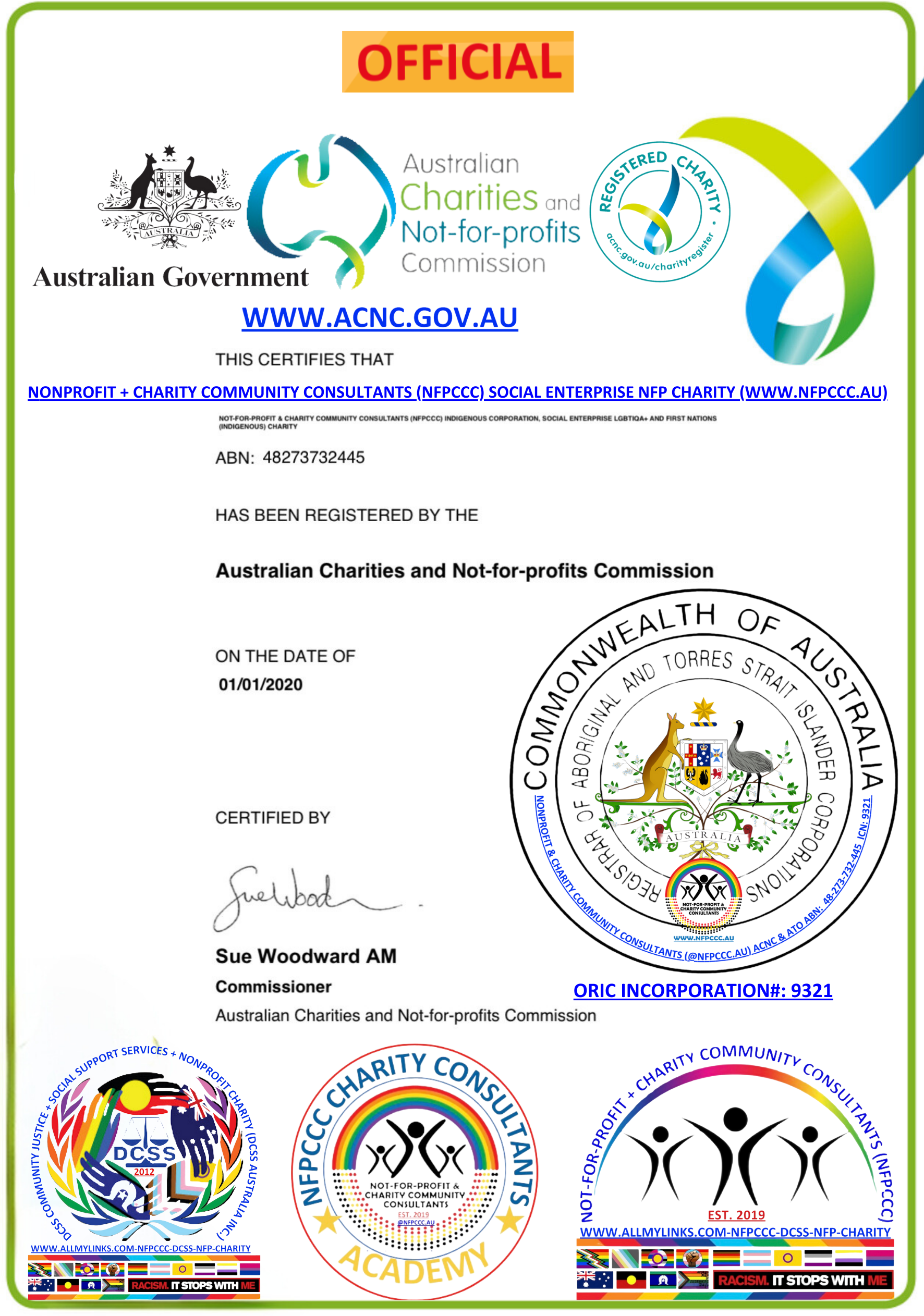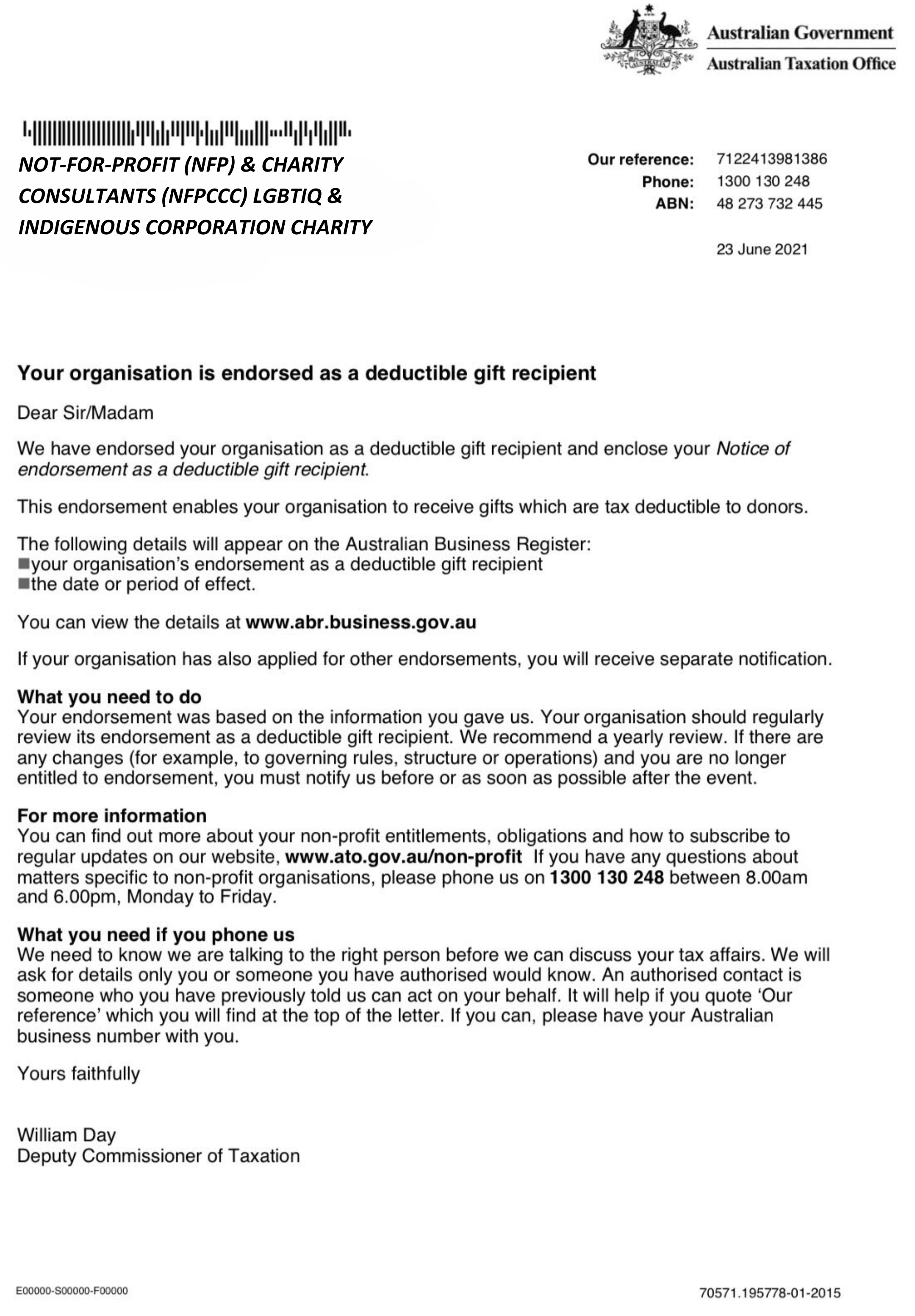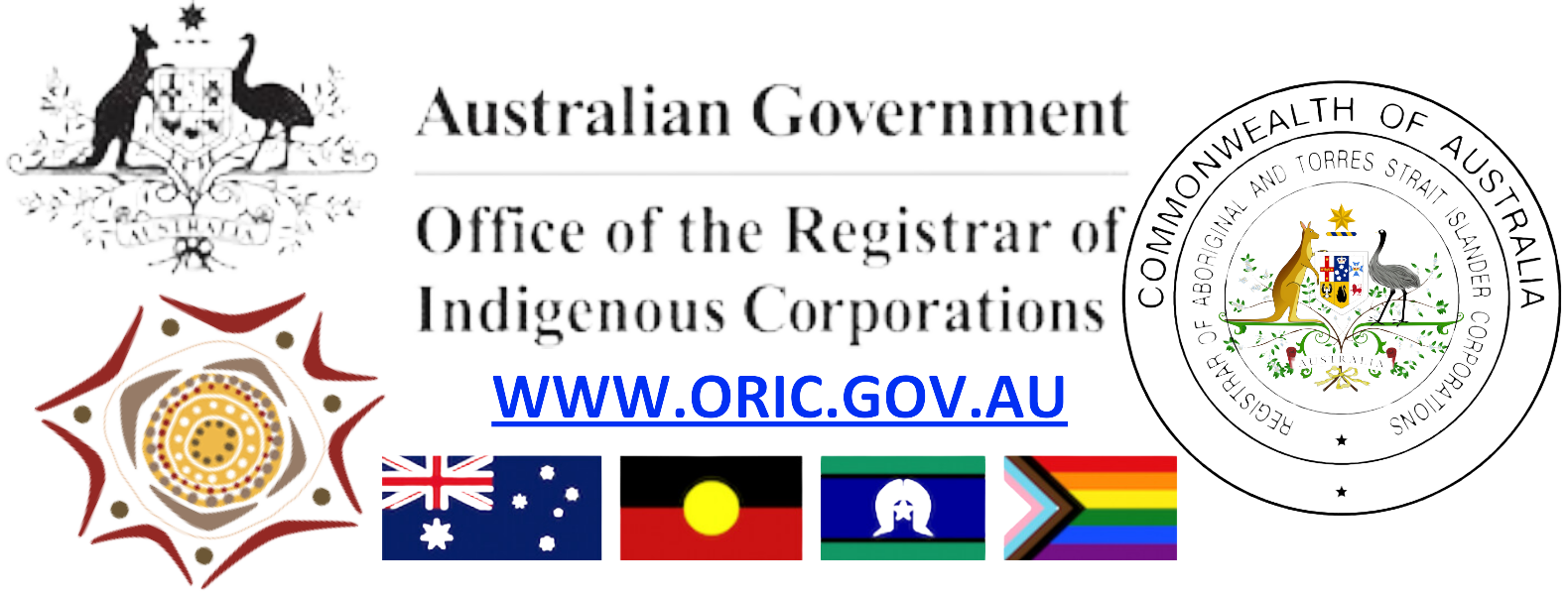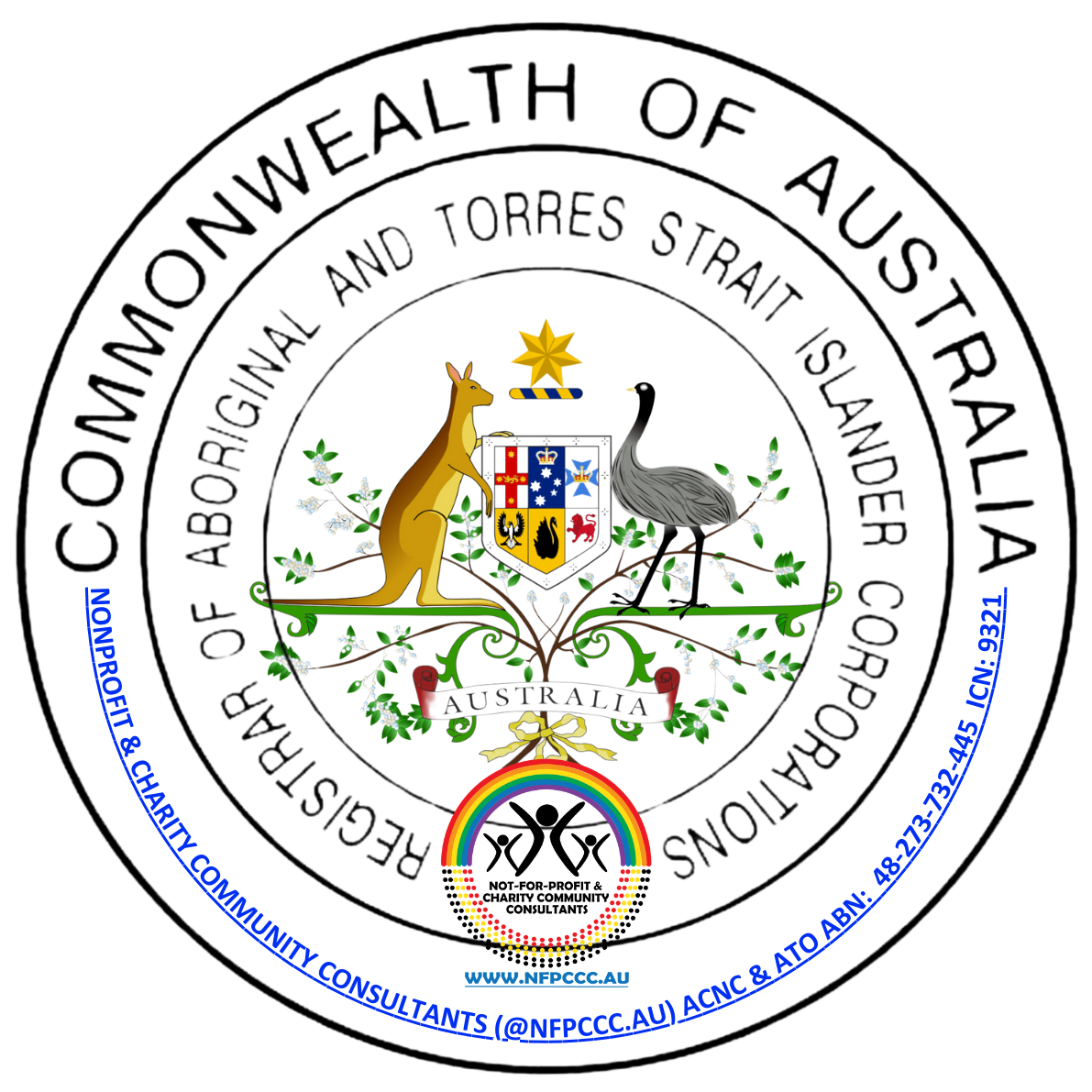BYLAWS OF NOT-FOR-PROFIT & CHARITY COMMUNITY CONSULTANTS (NFPCCC) AND DCSS DUAL LGBTIQA+ & FIRST NATIONS (INDIGENOUS) COMMUNITY SPECIALIST NFP-CHARITY
ARTICLE I - NAME
ARTICLE II - PURPOSE
The purpose of the Organisation/Charity is to provide consulting services, support, and advocacy for the LGBTIQA+ and First Nations (Indigenous) + Military/Veterans & Disability + Multicultural (CALD & BIPOC) communities, focusing on empowerment, inclusion, and the betterment of community welfare.
ARTICLE III - MEMBERSHIP
Eligibility: Membership is open to individuals and organizations who support the mission and goals of the Organisation.
Classes of Members: There shall be two classes of members: Individual Members and Organizational Members.
Dues: Membership dues, if any, shall be determined by the Board of Directors.
ARTICLE IV - BOARD OF DIRECTORS
General Powers: The Board of Directors shall manage the affairs of the Organization.
Number and Tenure: The Board shall consist of a minimum of five (5) and a maximum of fifteen (15) members. Directors shall serve for a term of two (2) years and may be re-elected.
Election of Directors: Directors shall be elected by a majority vote of the members at the annual meeting.
Meetings: The Board shall hold regular meetings at least quarterly, with special meetings called as needed.
Quorum: A majority of the Board members shall constitute a quorum for the transaction of business.
Vacancies: Any vacancy occurring on the Board may be filled by the affirmative vote of a majority of the remaining directors.
ARTICLE V - OFFICERS
Officers: The officers of the Organization shall be a President, Vice President, Secretary, and Treasurer.
Election and Term of Office: Officers shall be elected by the Board of Directors for a term of one (1) year and may be re-elected.
Duties:
President: The President shall preside at all meetings and represent the Organization publicly.
Vice President: The Vice President shall assist the President and assume duties in their absence.
Secretary: The Secretary shall keep minutes of meetings and handle correspondence.
Treasurer: The Treasurer shall manage the finances of the Organization, including the preparation of financial reports.
ARTICLE VI - COMMITTEES
The Board may create committees as needed. Each committee shall have a chairperson appointed by the Board.
ARTICLE VII - FINANCIAL ADMINISTRATION
Fiscal Year: The fiscal year of the Organization shall begin on the first day of July and end on the last day of June.
Budget: The Board shall approve an annual budget and oversee financial operations.
Audits: An independent auditor shall audit the financial records annually.
ARTICLE VIII - AMENDMENTS
These bylaws may be amended by a two-thirds (2/3) majority vote of the Board of Directors at any regular or special meeting, provided that written notice of the proposed amendment is given at least two (2) weeks in advance of the meeting.
ARTICLE IX - DISSOLUTION
Upon dissolution of the Organisation in Australia, any remaining assets shall be distributed to one or more organisations with similar purposes that qualify as exempt under section Public/Health Benevolent Institution (PBI /HBI) NonProfit Charity of the Australian Charities & Not-for-Profits & Taxation Act.
Upon dissolution of the Organisation in the USA, any remaining assets shall be distributed to one or more organisations with similar purposes that qualify as exempt under section 501(c)(3) of the USA Internal Revenue Code.
These sample bylaws are intended as a starting point. It's recommended to consult with a legal professional specializing in nonprofit law to ensure compliance with local regulations and specific needs of the Organization.











